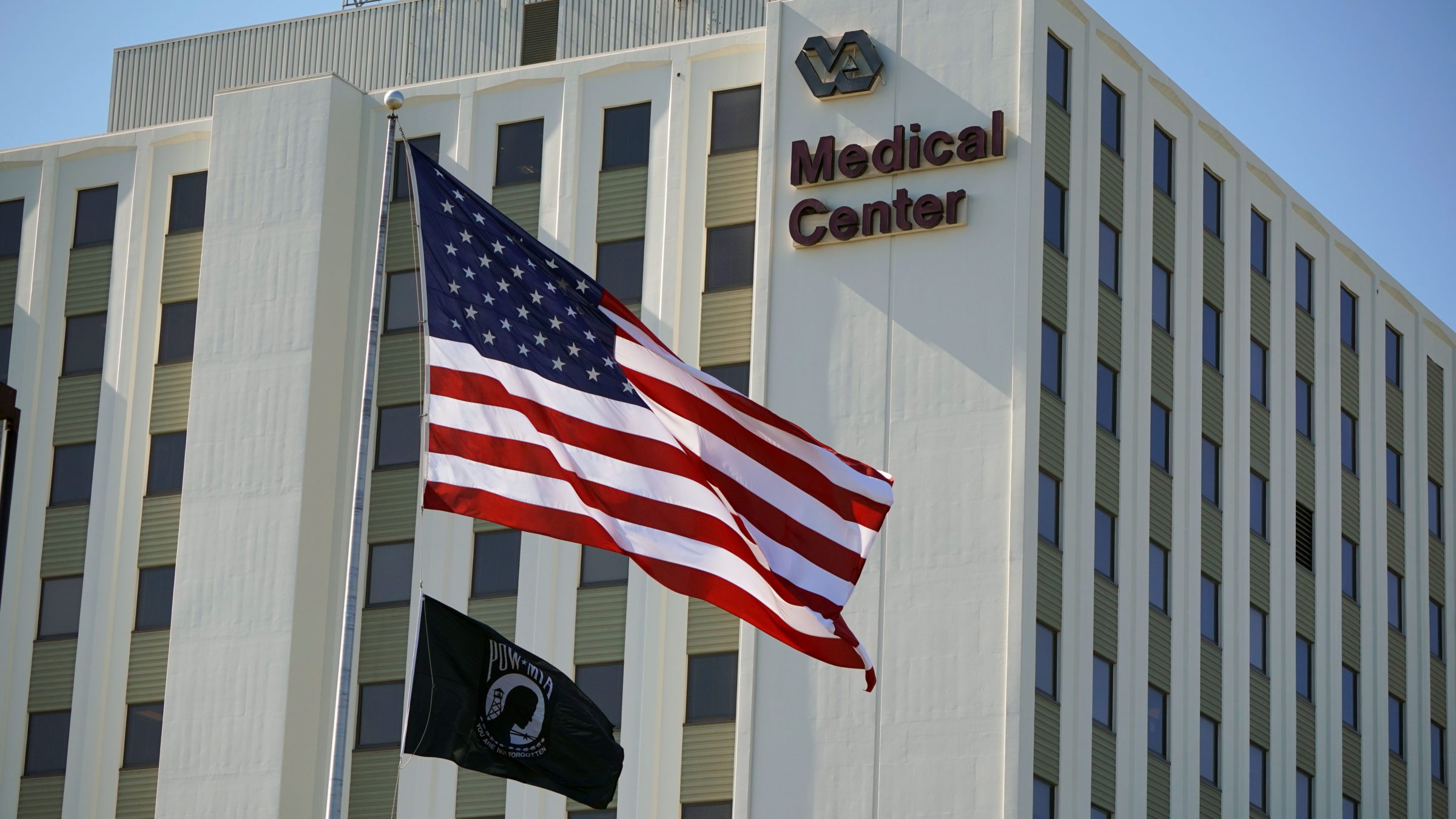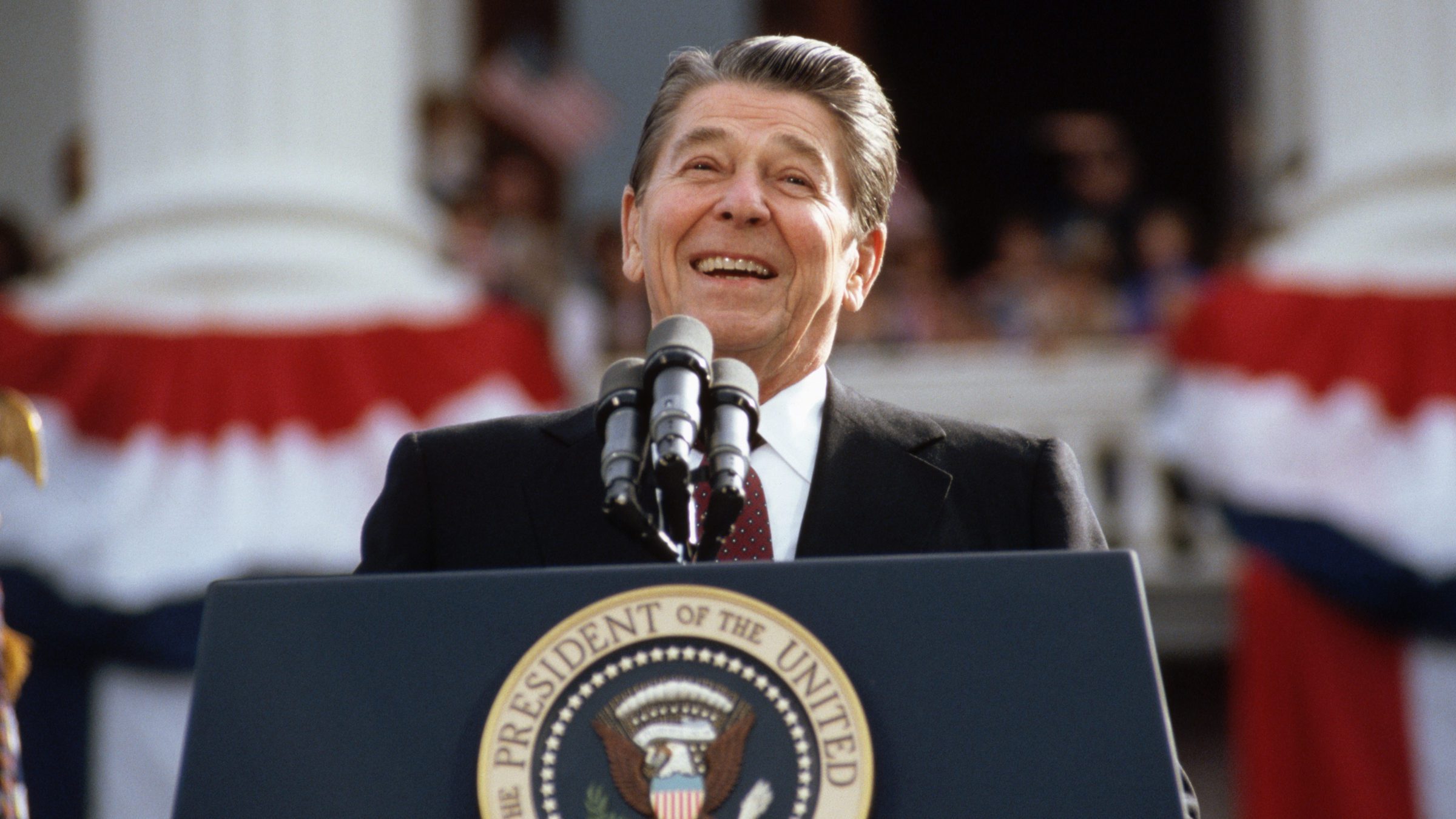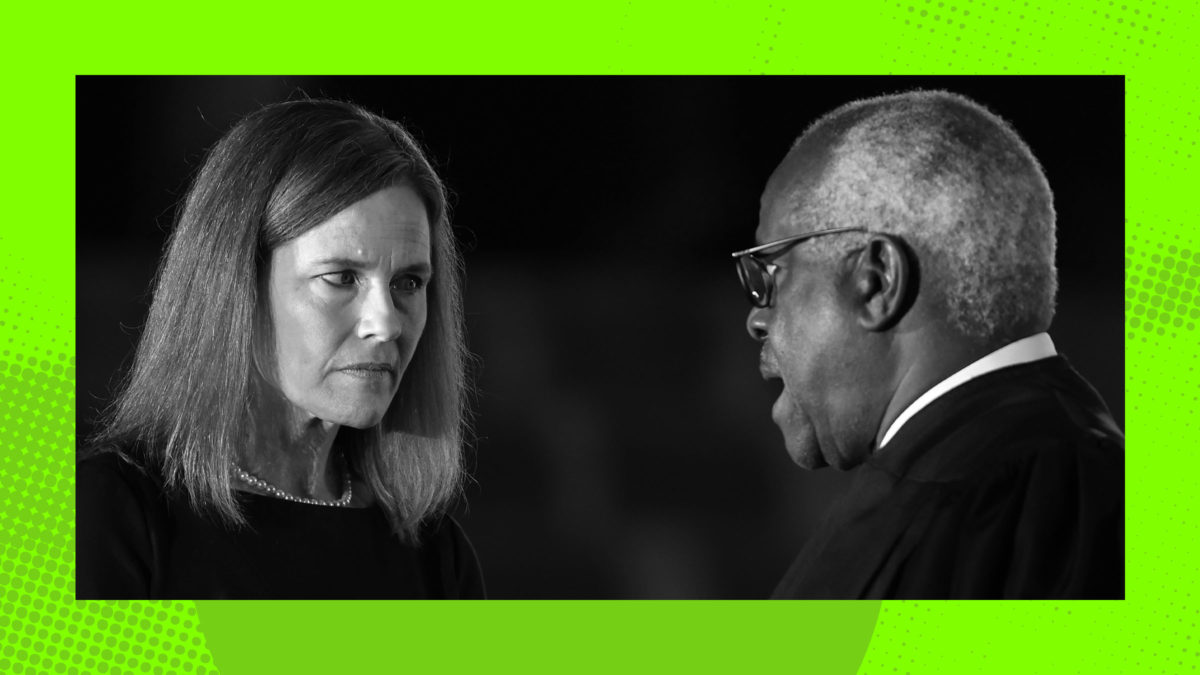For good reason, much of the public’s attention during the final weeks of the Supreme Court’s most recent term focused on the looming end of the right to abortion care. During that period, however, the Court also issued a series of warning signs that, as a pair of professors put it in a May op-ed, evinced the justices’ intent to sabotage essential public benefits programs by “disentitling tens of millions of children and adults, disproportionately poor and people of color.”
One such warning sign came on June 15, when the Court in George v. McDonough made it harder for disabled veterans to receive disability compensation from the federal Department of Veterans Affairs. To arrive at this conclusion, the Court decided that a legal error—an error admitted to by the federal government and held unlawful by federal courts—is not a “clear and unmistakable error” that would allow veterans to receive the disability benefits the government owes them.
McDonough was about the disability claim of Marine veteran Kevin George, who was medically discharged in 1975 just months after enlisting, when he experienced a mental health crisis related to schizophrenia that resulted in his hospitalization. The statutory scheme creating the VA disability system requires the VA to pay veterans a monthly benefit for disabilities incurred “in the line of duty,” or for pre-existing conditions that were aggravated by military service. The law further requires the VA to presume that veterans are in “sound condition” when they enter service, unless evidence clearly shows that their condition existed at the time of enlistment, and was not aggravated by their period of service.
George, who had never experienced or been diagnosed with mental health issues before, filed a disability claim shortly after his discharge. But at that time, the VA had promulgated a regulation to reject claims by proving only that a condition pre-existed a veteran’s service, regardless of whether service exacerbated that condition. As explained in an amicus brief filed by the National Veterans Legal Services Program, this regulation aligned with the VA’s “policy preference” of “simpl[ifying] a regulatory morass.” But it also made it easier for the VA to reject claims like George’s, which it did in 1977.

A VA medical center in Long Beach, California (Photo by Scott Varley/MediaNews Group/Torrance Daily Breeze via Getty Images)
This regulation remained in effect until 2003, when the VA admitted that it directly conflicted with the statute’s requirement that the government extend to veterans a “presumption of soundness” at the time of their enrollment. After a federal court of appeals reached the same conclusion, the VA issued a new regulation in 2005.
Under veterans’ law, a longstanding doctrine known as “clear and unmistakable error” allows veterans to reopen wrongfully denied disability claims. In 2014, George petitioned the VA to reexamine his original 1975 claim, arguing that the old regulation’s invalidation should allow him a second chance. The VA refused, however, arguing no clear error exists when the VA “faithfully applie[d] an existing VA regulation,” no matter how invalid that regulation may be.
At the Supreme Court, a 6-3 majority brought Kevin George’s 47-year dispute to a baffling end. Writing for the majority, Justice Amy Coney Barrett argued that judicial invalidation of an erroneous regulation is a mere “change in the interpretation of the law” that did not allow for clear-error review. The reason for the change, she continued, was of no consequence: “A change based on the conclusion that a prior interpretation was wrong is still a changed interpretation.” As Justices Neil Gorsuch, Sonia Sotomayor, and Stephen Breyer pointed out in dissent, this artful dodge ignores a common-sense understanding of the words “clear and unmistakable error”; an unlawful regulation is always unlawful, not just when someone happens to challenge it in court.
The result in George will make it harder for disabled veterans to receive benefits to which they should be entitled. Already, veterans’ advocates have decried the decision, which is only the latest extension of this Court’s “rights without remedies” jurisprudence: Under George, veterans retain their theoretical right to public benefits. They just have no way to vindicate it.
This Court will not stop at access to veterans’ benefits. A few hours before POLITICO published the leaked decision in Dobbs v. Jackson Women’s Health Organization, the Court granted certiorari in Health and Hospital Corp v. Talevski, a case that sets the stage for the Court to sabotage Medicaid, food and housing assistance programs, and other public benefits programs. As explained by law professors Timothy Jost and Sarah Rosenbaum, the Court’s handling of Talevski, which the justices will hear in the upcoming term, may “completely foreclose access to the courts without regard to whether benefit guarantees are threatened unlawfully.”
Talevski comes on the heels of decades of conservative reaction against the provision of public benefits. In 1981, President Ronald Reagan began gutting New Deal- and Great Society-era public benefits programs, blaming the poor for America’s economic woes. He set about cutting $22 billion from social welfare programs, and systematically purged individuals with disabilities from Social Security. President Bill Clinton continued Reagan’s anti-poor legacy, campaigning on a promise to “end welfare as we know it” and instituting stringent conditions on welfare recipients that only made the poor poorer.
For a long time, federal courts were among the few government institutions that protected access to public benefits. In the 1960s and 1970s, a series of Supreme Court decisions like Goldberg v. Kelly found a constitutionally-protected right to due process when the government reduces or terminates one’s benefits. For over half a century, recipients have been able to protect their rights under a federal statute known as Section 1983, which gives individuals the right to sue state government officials for violating their rights under the Constitution and federal law. Since the Court expressly permitted such suits in Maine v. Thiboutot in the 1980s, lower courts have issued hundreds of decisions allowing benefits recipients and community health centers to sue states to vindicate their rights.

When you’re thinking about some poor people whose lives you made more difficult (Photo by © Wally McNamee/CORBIS/Corbis via Getty Images)
In Talevski, Indiana is asking the Court to overturn these decades of precedent. Indiana’s argument is that Medicaid is a contract between states and the federal governments, of which Medicaid recipients are merely “third-party beneficiaries” who lack standing to enforce “contractual” rights. Justice Clarence Thomas has long invited this specific line of argument. In 2003, his concurrence in Pharmaceutical Research and Manufacturers of America v. Walsh described Medicaid as “much in the nature of a contract,” with “states free to deviate from [its] requirements.” In Gee v. Planned Parenthood of Gulf Coast, a 2018 case raising the same issue in Talevski, Thomas dissented from the Court’s denial of certiorari, claiming that the Court had done so only because “some respondents in these cases are named Planned Parenthood.” Justices Samuel Alito and Neil Gorsuch joined him.
The Court in Talevski may once again reject the “contract” theory. But the George decision portends a darker future. George’s case relied on a remedy which had existed, as the National Veterans Legal Services Program’s brief noted, “unbroken” since the 1920s, until the current Court decided to gut the right it protected. Already, Thomas has signaled his approval of a theory of public benefits law that some of his fellow justices have endorsed too. Nothing about George (or any one of the notable decisions of the past Court term) suggests that these conservatives are hesitant to cast aside well-settled law if they have the votes to do it.
The Court’s apparent desire to wreck the economic rights of the poor and underserved will have disastrous consequences. America is in the grips of a financial crisis, marked by skyrocketing rents, persistent inflation, and stagnating wages. Against this backdrop, limiting access to public benefits would sever financial lifelines that were already, at best, the bare minimum in the world’s wealthiest country. Six decades after LBJ launched his War on Poverty, the Supreme Court’s forthcoming War on the Poor may very well undo it.

